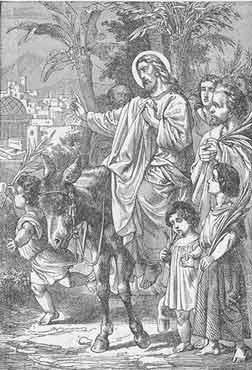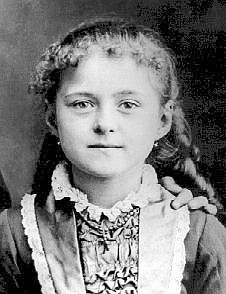9th Sunday after Pentecost
Here are some excerpts from the 1962 Roman Catholic Daily Missal on the 9th Sunday after Pentecost, and today's gospel is also very beautiful ...
God is our Helper, and He will always come to our aid: He wil open the ears of His Mercy to our prayers, and will not allow us to be tempted beyond our strength. Let us obey therefore with joy the precepts of the Lord, let us worthily attend the mysteries of holy Mass, and partake of the Body of the Lord, the manna of our souls.
Introit (Ps. 53: 6, 7, 3)
Behold, God is my helper, and the Lord is the protector of my soul: turn back the evils upon mine enemies, and cut them off in Thy truth, O Lord, my protector. (Psalm) Save me, O God, by Thy name, and deliver me in Thy strength. Glory be to the Father.
Ecce Deus adjuvat me, et Dominus susceptor est animae meae: averte mala inimicis meis, et in veritate tua disperde illos, protector meus, Domine. (Psalm) Deus in nomine tuo salvum me fac: et in virtute tua libera me. Gloria Patri. Ecce Deus adjuvat me ...
Gradual (Ps. 8: 2)
Domine Dominus noster, quam admirabile est nomen tuum in universa terra! Quoniam elevata est magnificentia tua super coelos.
Communion (John 6:57)
He that eateth My Flesh, and drinketh My Blood, abideth in Me, and I in him, saith the Lord.
Qui manducat meam carnem, et bibit meum sanguinem, in me manet, et ego in eo, dicit Dominus.
ASPIRATION: I beseech Thee, O Lord, who didst weep over the city of Jerusalem, because it knew not the time of its visitation, to enlighten my heart, that I may know and profit by the season of grace.
And here's a beautiful meditation on Jesus weeping over Jerusalem, from the book, Alone with God by Fr. J. Heyrman S.J. :

JESUS WEEPS OVER JERUSALEM
Luke 19: 41-47
1. In the Gospel of this Sunday we read that Jesus wept. Only twice do the Evangelists record that Jesus shed tears, once before the grave of Lazarus, and then on this occasion when He thought of the terrible chastisement that would overtake the guilty city. Only just now He has allowed the Galileans to acclaim Him as Messiah, and in the midst of the exulting multitude He goes down from Bethania to Jerusalem. There lay before Him the city of David, with its marble Temple, glittering in the rays of the sun. For a moment He stood still, contemplating the splendid scene for the last time. Behind this splendour His prophetic eye discerned the frightful picture of the destruction of the doomed city, and His Heart was stirred with compassion. “And when He drew near, seeing the city, He wept over it” (Luke 19:41).
2. Petition: The grace lovingly and reverently to share the profound emotion of His divine and human heart. “Behold how He loved” the city of His fathers, His nation, us all!
I. The Circumstances
The event occurred during our Lord’s triumphal entry into Jerusalem, whilst the multitudes that preceded and that followed Him “cried saying: Hosanna to the Son of David; Blessed is He that cometh in the name of the Lord; Hosanna in the highest” (Mt. 21: 9).
Perhaps it has happened to us that, after “a perfect day” when we had savoured the expression of men’s gratitude and esteem, after darkness and silence had cast their pall over us, we deeply felt the utter vanity of all earthly things. For Jesus there was no need that the day should pass away: the tragedy of the cross was ever before His eyes. Our mind gets completely absorbed in the event of the moment: not so the mind of Jesus. He remembered the fickleness of the people, and the hatred and envy of the Pharisees who were determined to put Him to death.
While the multitude was leading Him in triumph into the city, His thoughts went to the Father: “Yea Father, for so it hath seemed good in thy sight” (Mt. 11:26). What was written must be fulfilled: the daughter of Sion should pay Him the homage due to her Messiah.
II. Jesus Weeps and Laments
When from the Mount of Olives He beheld the holy City, He felt deeply moved, as He had felt at the sight of the grave of Lazarus and of his sisters weeping. “Jesus groaned in the spirit and troubled himself” (John 11:33). And now too He wept and from the depths of His Heart He uttered this poignant lamentation; “If thou also hadst known, and that in this thy day, the things that are to thy peace: but now they are hidden from thy eyes. For the days shall come upon thee, and thy enemies shall cast a trench about thee, and compass thee round, and straiten thee on every side, and beat thee flat to the ground, and thy children who are in thee. And they shall not leave in thee a stone upon a stone: because thou hast not known the time of thy visitation” (Luke 19: 42-44). This lament is inspired by pure love; and for His own sake does He mourn: no question of I or Me; only if thou hadst known … thy enemies …
Jesus loved His country, He loved His people, His Father’s chosen people; He loved the Temple, then the only sanctuary on earth where the name of the true God was invoked. Every year, from the time He was twelve, He had made the yearly pilgrimage, and had chanted the pilgrim’s canticle, “I rejoiced at the things that were said to me: We shall go into the house of the Lord. Our feet were standing in thy courts, O Jerusalem” (Ps. 121: 1,2). Jesus does not belong to the race of those heroes of iron and steel, who would deem it a weakness to entertain any human feeling. He did weep and mourn over the obstinacy of His nation. That this was not a sign of weakness is patent from what follows in St. Luke. “And entering the Temple, he began to cast out them that sold therein, and them that bought, saying to them, “My house is the house of prayer. But you have made it a den of thieves” (Luke 19: 45,46).
Whatever pertains to our human nature belongs to the God-Man: He has assumed it all unto Himself; He has purified it, ennobled it, divinised it. “In him dwelleth all the fullness of the Godhead corporeally” (Col. 2:9), and all that is excellent in man. This is the great mystery of love, which surpasseth all understanding, all admiration, all praise, all gratitude.
III. Man’s Hardness of Heart
We are here face to face with another inscrutable mystery: the mystery of evil. The course of the world could have been different; indeed God would have had it different. “God, who, at sundry times and in divers manners, spoke in times past to the fathers, by the prophets, last of all, in these days hath spoken to us by his Son, whom he hath appointed heir of all things, by whom also he made the world” (Heb. 1:1,2). In the Old Testament, God, through the mouth of Isaias, had remonstrated with the Jewish people: “What is there that I ought to have done to my vineyard, that I have not done to it?” (Is. 5:4). How much more reason does Jesus have to address this plaint to His people on the eve of His passion!
Man is the proud possessor of free will; he has power deliberately to close his eyes to truth and his heart to love, even to divine truth and to divine love. Jesus wept over men’s wanton blindness and fatal obstinacy. This is “the mystery of iniquity which already worketh” (2 Thes. 2:7). By prayer, penance and holiness of life, we can co-operate with God to overcome the Evil One.
Prayer: O God, whose will it is that all men should be saved and come to know Thy truth; we pray Thee to send workers into Thy harvest, and to fill them with confidence in preaching Thy word: that Thy Gospel may spread and be made known, and all nations recognize Thee the one true God, and Jesus Christ, whom Thou didst send, Thy Son, our Lord; who liveth and reigneth … (Collect, Mass for the Propagation of the Faith).
Labels: 9th Sunday after Pentecost, Alone with God by Fr J Heyrman S.J.


























0 Comments:
Post a Comment
<< Home